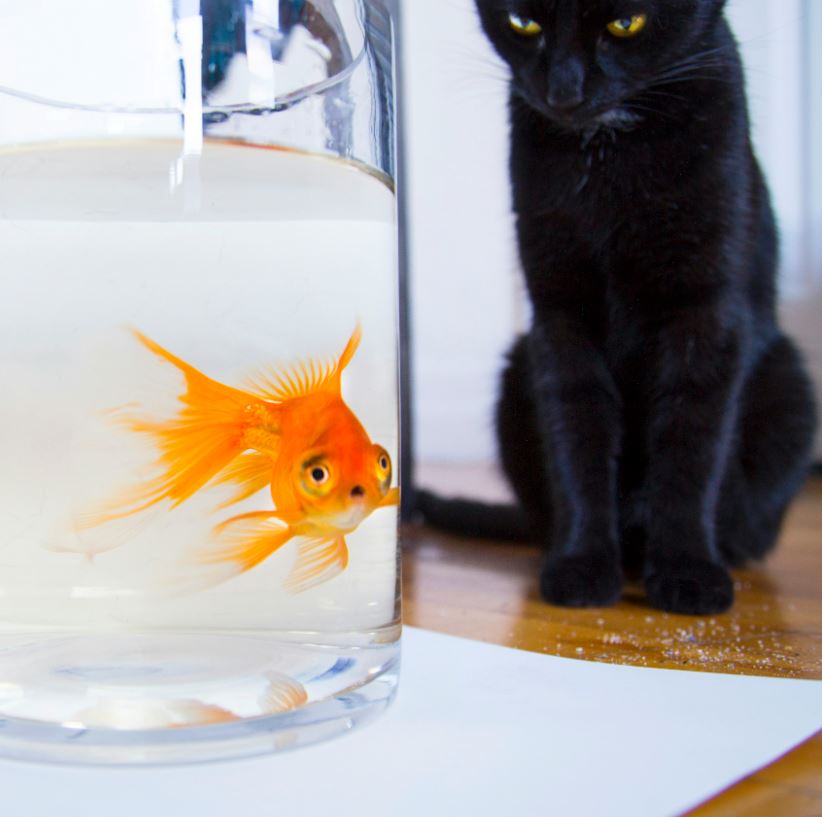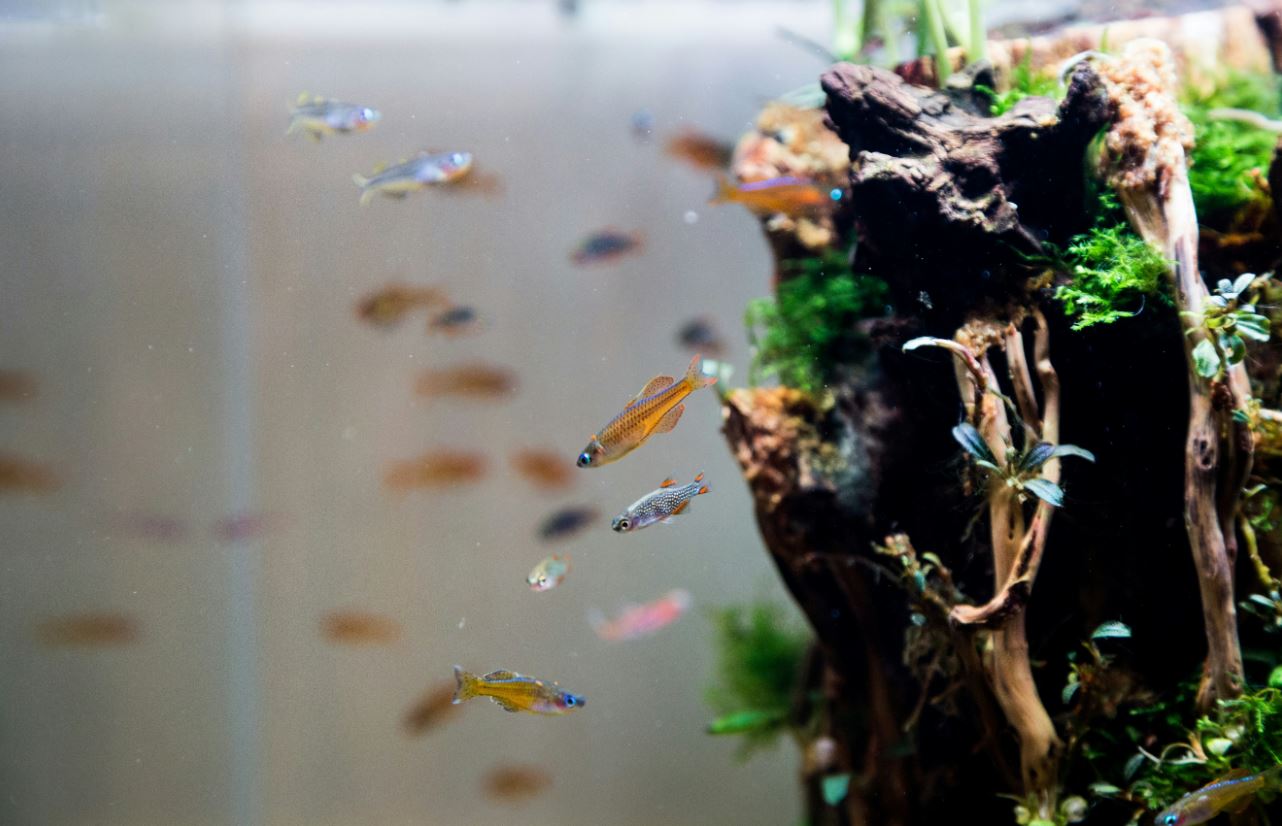
When you notice your fish not eating, it can be concerning. There are several common reasons that might explain this behavior. One of the most frequent culprits is stress.
Fish can be sensitive creatures, and changes in their environment, such as new tank mates, alterations in water conditions, or even loud noises, can lead to a loss of appetite. If your fish seem skittish or are hiding more than usual, it’s a good indication that stress might be the issue. Another reason your fish may not be eating could be related to their natural instincts.
In the wild, fish often have to be cautious about their surroundings to avoid becoming prey. If they feel threatened in their tank, they may choose to forgo food until they feel safe again. Additionally, some species of fish have specific feeding habits and may only eat at certain times of the day or under particular conditions.
Key Takeaways
- Common reasons for fish not eating include stress, poor water quality, and inappropriate diet.
- Environmental factors such as water temperature, lighting, and tank size can affect fish appetite.
- Health issues like parasites, bacterial infections, and swim bladder disorders can impact fish feeding behavior.
- Solutions for improving fish appetite include maintaining water quality, providing a varied diet, and reducing stress in the aquarium.
- Adjusting water parameters such as pH, ammonia levels, and oxygen content can encourage feeding in fish.
Environmental Factors Affecting Fish Appetite
The environment in which your fish live plays a crucial role in their feeding habits. Water quality is one of the most significant factors affecting appetite. High levels of ammonia, nitrites, or nitrates can create an unhealthy environment that may lead to stress and illness, both of which can suppress appetite.
Regularly testing your water parameters and ensuring they are within the ideal range for your specific fish species is essential for maintaining a healthy aquarium. Temperature is another environmental factor that can influence your fish’s willingness to eat. Each species has its preferred temperature range, and deviations from this range can lead to lethargy and decreased appetite.
For instance, if the water is too cold, your fish may become sluggish and less interested in food. Conversely, if the water is too warm, it can lead to increased metabolism and stress, which may also affect their feeding behavior. Keeping a close eye on the temperature and making adjustments as needed can help encourage your fish to eat.
Health Issues Impacting Fish Feeding Behavior

Health problems are another significant reason why your fish might not be eating. Just like any other pet, fish can suffer from various illnesses that can affect their appetite. Common health issues include parasites, bacterial infections, and fungal infections.
If you notice any unusual behavior, such as swimming erratically or having visible signs of illness like lesions or discoloration, it’s essential to investigate further. In addition to visible symptoms, internal health issues can also impact feeding behavior.
Similarly, digestive issues can lead to discomfort and a lack of interest in eating. If you suspect that your fish may be ill, it’s crucial to act quickly and consult with a veterinarian who specializes in aquatic animals.
Solutions for Improving Fish Appetite
If your fish are not eating, there are several solutions you can try to improve their appetite. First and foremost, ensure that their environment is optimal. This means maintaining clean water with appropriate parameters and providing a stress-free habitat.
Consider rearranging decorations or adding hiding spots to help your fish feel more secure. Another effective solution is to change the type of food you offer. Sometimes, fish simply get bored with their diet or may not find the current food appealing.
Experimenting with different types of food—such as flakes, pellets, frozen foods, or live foods—can stimulate their interest in eating again. Additionally, try feeding them at different times of the day to see if they respond better during certain periods.
Adjusting Water Parameters to Encourage Feeding
Adjusting water parameters is a critical step in encouraging your fish to eat again. Start by testing the water for ammonia, nitrites, nitrates, pH levels, and temperature. Each species has specific requirements; for example, tropical fish typically thrive in warmer waters (around 75-80°F), while goldfish prefer cooler temperatures (around 65-72°F).
If you find that any parameters are out of range, take immediate action to correct them. This might involve performing partial water changes to reduce toxins or using a water conditioner to adjust pH levels. Remember that sudden changes can also stress fish, so make adjustments gradually whenever possible.
By creating a stable and healthy environment, you’ll likely see an improvement in your fish’s appetite.
Offering a Varied Diet to Stimulate Appetite

Variety is the Spice of Life
Just like humans, fish can become bored with the same food day after day. Providing a mix of different types of food not only keeps mealtime interesting but also ensures that your fish receive a balanced diet rich in essential nutrients.
Creating a Balanced Diet
Consider incorporating high-quality flakes or pellets as a staple diet while supplementing with frozen or live foods like brine shrimp or bloodworms occasionally. You might also try offering vegetables such as blanched peas or zucchini for herbivorous species.
The Benefits of a Varied Diet
By diversifying their diet, you’ll likely find that your fish become more enthusiastic about eating. This approach will not only stimulate their appetite but also promote overall health and well-being.
Addressing Stress and Aggression in the Aquarium
Stress and aggression among tank mates can significantly impact feeding behavior in fish. If you have aggressive species in your aquarium, they may intimidate more timid fish during feeding times, leading to decreased appetite for those less dominant individuals. Observing interactions among your fish can help you identify any aggressive behaviors that need addressing.
To mitigate stress and aggression, consider rearranging the tank layout or adding more hiding spots and territories for each species. This can help create a more balanced environment where all fish feel secure enough to eat without fear of being bullied. In some cases, separating aggressive individuals into different tanks may be necessary to ensure the well-being of all your aquatic pets.
Seeking Professional Help for Persistent Feeding Issues
If you’ve tried various strategies and your fish still refuse to eat, it may be time to seek professional help. A veterinarian who specializes in aquatic animals can provide valuable insights into potential health issues that you might not have noticed. They can perform diagnostic tests and recommend appropriate treatments based on their findings.
Additionally, joining online forums or local aquarium clubs can connect you with experienced aquarists who may have faced similar challenges with their fish. Sharing experiences and solutions can provide you with new ideas and support as you work towards improving your fish’s appetite. In conclusion, understanding why your fish may not be eating involves considering various factors such as environmental conditions, health issues, and social dynamics within the tank.
By taking proactive steps—like adjusting water parameters, offering a varied diet, and addressing stress—you can create a healthier environment that encourages feeding behavior. If problems persist despite your best efforts, don’t hesitate to seek professional advice for tailored solutions that will help get your aquatic friends back on track!
FAQs
Why is my fish not eating?
There are several reasons why your fish may not be eating, including stress, illness, water quality issues, inappropriate diet, or environmental factors.
How can I tell if my fish is stressed?
Signs of stress in fish include loss of appetite, hiding, rapid breathing, or unusual swimming behavior. It’s important to address the cause of the stress to help your fish resume normal eating habits.
What are some common illnesses that can cause a fish to stop eating?
Common illnesses that can cause a fish to stop eating include bacterial or fungal infections, parasites, and swim bladder disorders. It’s important to monitor your fish for any signs of illness and seek veterinary care if necessary.
How can I improve my fish’s appetite?
To improve your fish’s appetite, ensure that the water quality is optimal, provide a varied and appropriate diet, create a stress-free environment, and monitor for any signs of illness or disease.
What should I do if my fish continues to not eat despite addressing potential issues?
If your fish continues to not eat despite addressing potential issues, it’s important to seek advice from a veterinarian or a knowledgeable fish expert. They can help diagnose any underlying health issues and provide appropriate treatment.
Recommended Internet Infos:
The effects of interacting with fish in aquariums on human …
Source:
https://pmc.ncbi.nlm.nih.gov/articles/PMC6663029/
Understanding and Preventing Fish Kills in Your Pond
Source:
https://pubs.nmsu.edu/_w/W105/index.html
Aquarium fish are more aggressive in reduced …
Source:
https://thedaily.case.edu/aquarium-fish-are-more-aggressive-in-reduced-environments-new-study-finds/
Recommended YouTube Tips Video:
👉 Please visit more Fish Care Infos.








